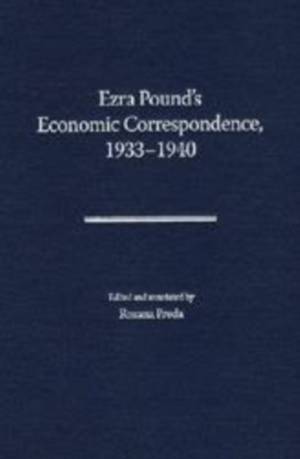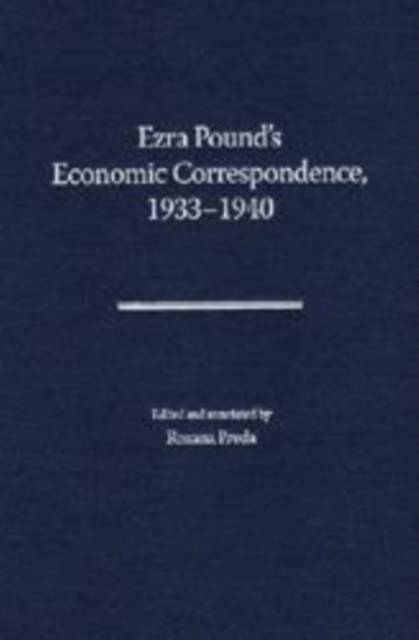
- Afhalen na 1 uur in een winkel met voorraad
- Gratis thuislevering in België vanaf € 30
- Ruim aanbod met 7 miljoen producten
- Afhalen na 1 uur in een winkel met voorraad
- Gratis thuislevering in België vanaf € 30
- Ruim aanbod met 7 miljoen producten
Zoeken
Omschrijving
Ezra Pound is remembered today as much for his modernist poetry as for his vocal support of Mussolini and, before WWII, fascism. During the Depression, he corresponded frequently with monetary reformers, economic historians, and journalists in the United States, Great Britain, and Italy. This annotated edition of many of Pound's letters from the period reveal his passionate efforts to effect global economic change. They provide a contemporary, albeit subjective insight into the debates raging among orthodox and radical economists during the 1930s. Pound's support for such new economic theories as social credit and free economy lay behind his hopes that economic reforms could alleviate the evils of poverty and prevent global war. Ezra Pound's Economic Correspondence, 1933-1940 provides compelling new insights into a number of the most sensitive and controversial issues in Pound studies, including the way economic beliefs were mirrored in his poetry; his attitudes towards war, liberalism, and the press; his growing fascist convictions; and his developing anti-Semitism.
Specificaties
Betrokkenen
- Auteur(s):
- Uitgeverij:
Inhoud
- Aantal bladzijden:
- 320
- Taal:
- Engels
Eigenschappen
- Productcode (EAN):
- 9780813030883
- Verschijningsdatum:
- 25/11/2007
- Uitvoering:
- Hardcover
- Formaat:
- Genaaid
- Afmetingen:
- 160 mm x 242 mm
- Gewicht:
- 830 g

Alleen bij Standaard Boekhandel
+ 129 punten op je klantenkaart van Standaard Boekhandel
Beoordelingen
We publiceren alleen reviews die voldoen aan de voorwaarden voor reviews. Bekijk onze voorwaarden voor reviews.








